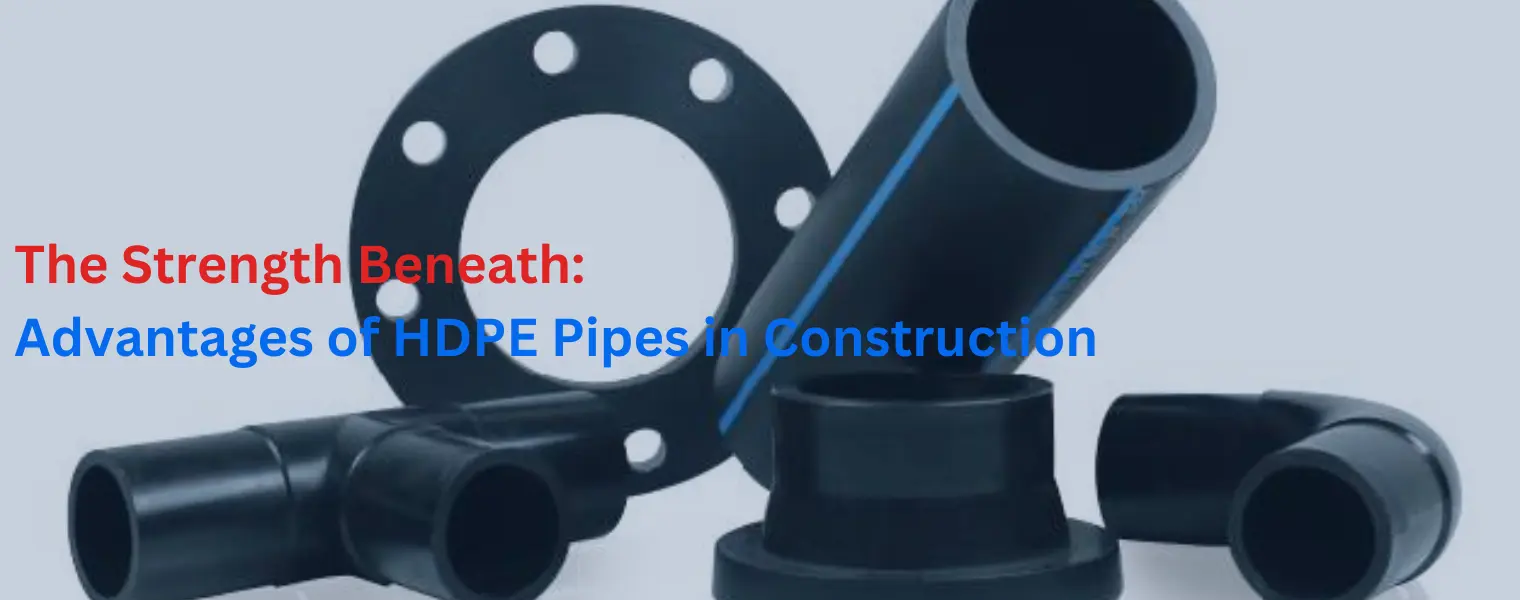
In the realm of construction materials, High-Density Polyethylene (HDPE) pipes stand out as unsung heroes, providing the backbone for numerous infrastructure projects. Beyond their unassuming appearance, these pipes possess remarkable structural advantages that make them a preferred choice in various construction applications. In this blog post, we will delve into the inherent strengths of HDPE pipes and how they contribute to the resilience and durability of modern construction projects.
HDPE pipes are renowned for their flexibility, allowing them to withstand significant external forces without compromising their structural integrity. This flexibility makes them particularly effective in areas prone to ground movement or seismic activity. Their ability to absorb impacts reduces the risk of fractures or failures, ensuring long-term reliability in dynamic construction environments.
Unlike traditional materials such as steel or iron, HDPE pipes are inherently resistant to corrosion. This property is a game-changer in construction projects where exposure to corrosive elements, such as chemicals or acidic soils, is a concern. The absence of corrosion ensures a longer lifespan, reducing maintenance costs and enhancing the sustainability of the infrastructure.
One of the critical structural advantages of HDPE pipes lies in their leak-resistant nature. The seamless, fused joints eliminate the weak points often associated with other pipe materials, significantly reducing the risk of leaks. This quality is paramount in applications like water supply and sewerage, where leakage can lead to significant environmental and financial consequences.
HDPE pipes exhibit exceptional durability even in the harshest environments. Whether exposed to extreme temperatures, ultraviolet radiation, or aggressive chemicals, HDPE pipes maintain their structural integrity over time. This durability translates into reduced replacement and repair costs, making them a cost-effective solution for a wide range of construction projects.
The flexibility and strength of HDPE pipes make them ideal for trenchless construction techniques, such as horizontal directional drilling (HDD) and pipe bursting. Their adaptability to diverse installation methods minimizes disruption to the surrounding environment and existing infrastructure, revolutionizing the construction process.
HDPE pipes find applications in a myriad of construction projects, including water supply systems, sewage and drainage networks, gas distribution, industrial pipelines, and more. Their versatility stems from the combination of strength, durability, and corrosion resistance, making them suitable for a wide range of engineering challenges.
In conclusion, HDPE pipes serve as the unsung champions in the construction industry, providing the strength beneath our infrastructure projects. Their remarkable flexibility, corrosion resistance, leak-proof design, and overall durability make them a reliable choice for engineers and contractors looking to build resilient and long-lasting structures. As we continue to push the boundaries of modern construction, the strength of HDPE pipes ensures a solid foundation for the infrastructure that shapes our world. For all your HDPE pipes and fittings needs, feel free to reach out us at Polyfab